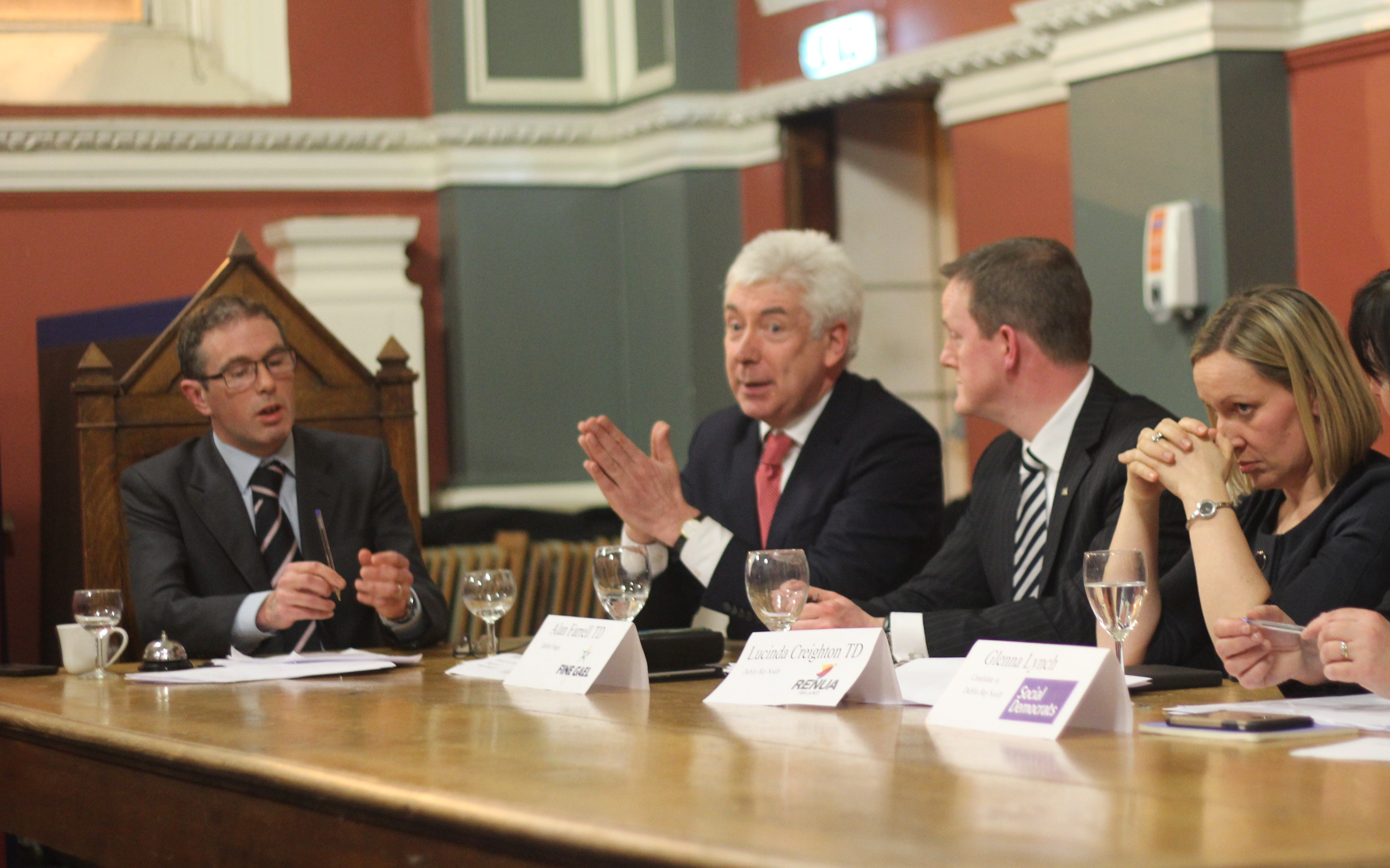
Alex White defended Labour returning to government, despite their current unpopularity. The party currently stands at 9% according to The Sunday Business Post’s Red C Polls, but White claimed that it was “vital” that the current coalition remain together in government so as to have the ability to influence change, with Alan Farrell echoing his statements, referring to the coalition’s work together as a “legacy.”
Lucinda Creighton was critical of White’s claims on government power: “The reform that was promised to… make our elected parliamentarians on all sides of the house relevant… has fallen flat on it’s face.”
Glenna Lynch argued that White and Farrell’s responses were indicative of the “cosy symbiotic relationship” of the coalition, criticising the parties on their inaction in response to low-level corruption within the government.
Creighton claimed that the Labour Party has rid itself of the role of the smaller party watchdog that it was initially supposed to adopt and challenged them to account for their actions.
Commitment to job growth and the twice-increased minimum wage was Farrell’s illustration of the current government’s commitment to economic development, but he conceded that cuts to frontline services were “unpalatable” and tax burdens were and continue to be an “imposition” on house-owners: “It’ll probably take three [terms] to get back to a point economically… where we can start delivering services we deserve.”
Creighton declared that changes proposed by the Organisation for Economic Co-operation and Development (OECD) and the EU regarding the corporate taxation system, favouring bigger European economies, are a threat to the Irish parliament, but furthermore that personal taxation is set to be “the biggest obstacle to growth.”
On the issue of taxation reform, Farrell was quick to point out the 440,000 lower-income earners currently exempt from taxes as a result of the party’s efforts.
White emphasised that the gain from tax cuts would be focused on lower- and middle-income earners.
Creighton outlined Renua’s flat-tax system, which is fixed at 23%. Under their proposal, a minimum wage earner will retain 77c out of every €1 earned. She urged people to dispel the notion that higher tax leads to higher revenue and emphasised that the growth in revenue of 1400% over the four-year period followed a reduction (from 40-20%) in capital gains tax. Her proposal was met with opposition from all other parties, with White describing it as “profoundly unfair.”
Lynch justified the Social Democrats’ higher-tax proposal on the grounds of a poll in June that saw 70% of the population in favour of investment in public services rather than tax cuts, stating that community responses to homelessness and flooding played a part in shaping people’s opinions on taxation: “You pay a little more tax and you have decent services… you pay less… and you hollow out services.”
Annette Mooney proposed the correction of the deficit on corporate tax income (from 6.25% to 12.5%), the introduction of a second band of tax for earners over €100,000 and the increase of capital gains tax from 33% to 50%.
Due to three members (White, Creighton and Farrell) of the panel leaving prior to questions opening to the floor, comments on the Eighth Amendment were not discussed with all members of the panel. Gavin Jennings, moderator for the evening, also took partial responsibility, stating that he left the questions on abortion toward the end of the debate for fear that it would take over the debate.
Mooney raised the issue of the potential 14-year jail sentence for women procuring illegal abortion pills, and its implications in the case of rape, where the rapist may only get a sentence of seven years in prison.
She also denied Labour’s claim that they brought the Protection of Life Bill into action, stating that it was “people on the ground” that forced the party to take action.
Sinn Féin and Fianna Fáil were the biggest parties among those who did not attend, both apologising for having to decline the offer.
Backlash online against the debate was aimed at the under-representation of smaller parties, and claims of bias on the society’s part were made. The society’s correspondent secretary Annabel O’Rourke issued a statement via Facebook to explain the their decision: “Unfortunately we could not invite all political parties to the debate. By our count, there are 16 political parties running in the general election, an unfeasible number for a debate.” Parties were invited based on the metric of having three or more elected TDs, a process she stated was one of necessity rather than the most preferred course of action.






